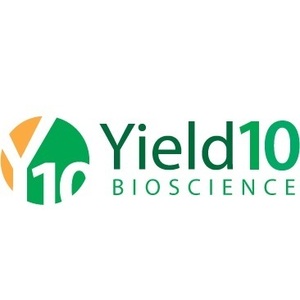Yield10 Bioscience evaluates novel traits in camelina, canola

November 2, 2020
BY Yield10 Bioscience Inc.
Yield10 Bioscience Inc., an agricultural bioscience company, on Oct. 1 announced it has completed the harvest for its 2020 Field Test Program for Camelina and canola trials conducted in the United States and Canada. Yield10’s 2020 Field Test Program is designed to evaluate several novel traits in Camelina and canola, and the company expects to begin reporting data from the field tests in the fourth quarter of 2020 through early 2021.
“We are pleased that our field trial contractors completed the seed harvest on schedule at all of the sites involved in our 2020 Field Test Program,” said Kristi Snell, Ph.D., chief science officer of Yield10 Bioscience. “We will continue to work closely with our field trial contractors to evaluate data collected from our studies. These field tests are designed to generate agronomic, yield and other data supporting the ongoing development of our traits in Camelina, canola and other commercial crops.”
A summary of the 2020 Field Test Program:
•Camelina/C3004: C3004 is a trait designed to increase seed yield that has shown promise in previous greenhouse and growth chamber experiments.
Advertisement
•Camelina/CRISPR E3902: E3902 is a CRISPR genome-edited trait designed to boost oil content. This line demonstrated positive results in 2019 field tests.
•Camelina/CRISPR C3007: C3007 is a CRISPR genome-edited trait designed to boost oil content. This is the first season of field testing the trait.
•Camelina/C3014 and C3015: Yield10 has designed a novel trait and reprogrammed Camelina to produce a PHA biomaterial as a third seed product in addition to the oil and protein meal.
Advertisement
•Canola/C3004: C3004 is a trait designed to increase seed yield. This is the first season of field testing the trait in canola.
•Canola/C3003: Yield10 grew 14 new canola/C3003 commercial quality lines for seed bulk up in the field in 2020 that the Company currently plans to field test in 2021. C3003 is a seed yield trait.
In the field tests of its novel traits in Camelina and canola, Yield10 monitored key agronomic and growth parameters of the plants throughout the growth period. Yield10 also plans to evaluate seed yield, oil content, PHA content and/or other metrics of the traits as appropriate after seed harvest. The field tests are designed to generate data on the performance of the novel traits under field conditions and to advance the development of the traits toward commercialization. The program will also generate field grown seed for subsequent field studies.
Related Stories
U.S. fuel ethanol capacity fell slightly in April, while biodiesel and renewable diesel capacity held steady, according to data released by the U.S. EIA on June 30. Feedstock consumption was down when compared to the previous month.
XCF Global Inc. on July 8 provided a production update on its flagship New Rise Reno facility, underscoring that the plant has successfully produced SAF, renewable diesel, and renewable naphtha during its initial ramp-up.
The U.S. EPA on July 8 hosted virtual public hearing to gather input on the agency’s recently released proposed rule to set 2026 and 2027 RFS RVOs. Members of the biofuel industry were among those to offer testimony during the event.
The USDA’s Risk Management Agency is implementing multiple changes to the Camelina pilot insurance program for the 2026 and succeeding crop years. The changes will expand coverage options and provide greater flexibility for producers.
EcoCeres Inc. has signed a multi-year agreement to supply British Airways with sustainable aviation fuel (SAF). The fuel will be produced from 100% waste-based biomass feedstock, such as used cooking oil (UCO).
Upcoming Events










